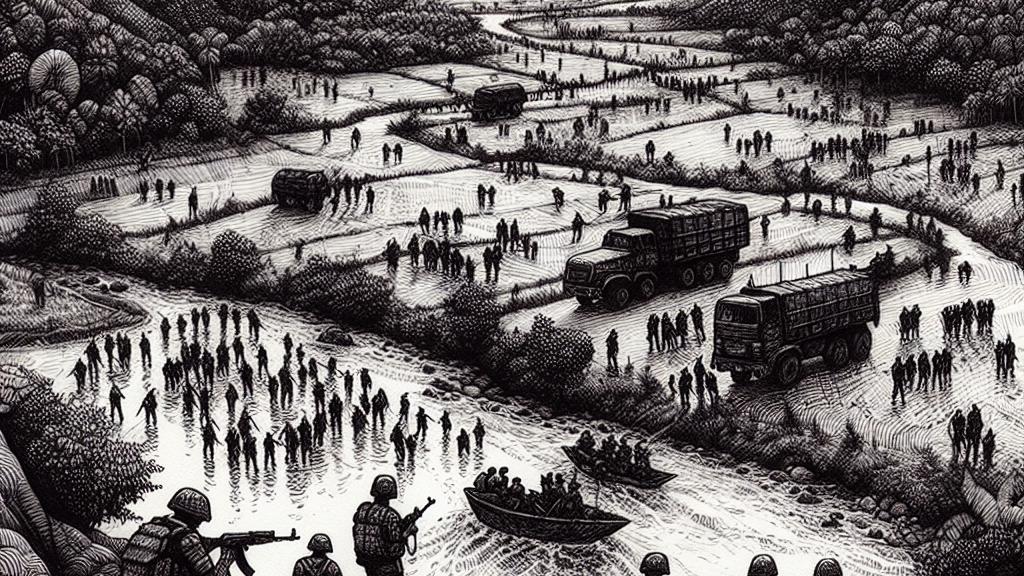Manipur on High Alert Amid Myanmar Militant Infiltration
Overview
- Security heightened in Manipur as 900 suspected Myanmar militants breach the border.
- Ethnic tensions escalate between the Meitei and Kuki communities, jeopardizing stability.
- Recent violence, marked by drone attacks, has led to tragic loss of life and significant displacement.

An Urgent Security Alert in Manipur
The northeastern Indian state of Manipur is currently facing an urgent security alert, triggered by reports of approximately 900 suspected militants infiltrating from Myanmar. This unsettling situation is not new; it emerges within the framework of long-standing ethnic tensions that have plagued the region for over a year. Notably, the conflict between the mainly Hindu Meitei majority and the predominantly Christian Kuki community has sparked numerous violent confrontations. For instance, recent clashes, some turning deadly, highlight the rapidly deteriorating conditions, prompting security forces to increase patrols and conduct combing operations throughout the rugged, remote terrains. Without swift action, authorities believe the potential for further violence and chaos looms ominously over the residents of Manipur.
Understanding the Ethnic Divide
At the heart of the unrest lies a complex web of historical grievances surrounding land rights and access to government jobs, which are crucial for both communities. The Meitei community, concentrated predominantly in the state capital, Imphal, often finds themselves at odds with the Kuki, who hold cultural and familial ties to tribal groups in Myanmar. A striking example is the backlash following the Meitei’s push for Scheduled Tribe status, a move vehemently opposed by Kuki leaders who argue it undermines their rights and aims to ensure systemic inequalities persist. The violence has escalated dramatically, with reports indicating Kuki militants adopting advanced tactics, such as using drones equipped for reconnaissance and attacks. These developments illustrate a shift not just in tactics, but also in the scale and depth of the conflicts, making them more lethal and complex.
The Role of Social Media and the Need for Government Action
In an age dominated by digital communication, social media platforms have transformed how narratives surrounding the conflict are constructed and disseminated. Both the Kuki and Meitei communities are actively sharing their perspectives, sometimes leading to confusion and misinformation. For example, viral images showing violent incidents have been manipulated to suit particular narratives, intensifying anger and retaliatory violence. Coupled with this digital battleground is the concerning silence from the government. Prime Minister Narendra Modi's lack of public commentary on the crisis has drawn widespread criticism. Many Manipuris feel abandoned amid escalating violence and fear for their safety. As the situation in Manipur continues to unfold in unsettling ways, it is vital for both local and national leaders to engage in meaningful dialogue and take decisive actions to restore peace and security for all of its citizens.

Loading...